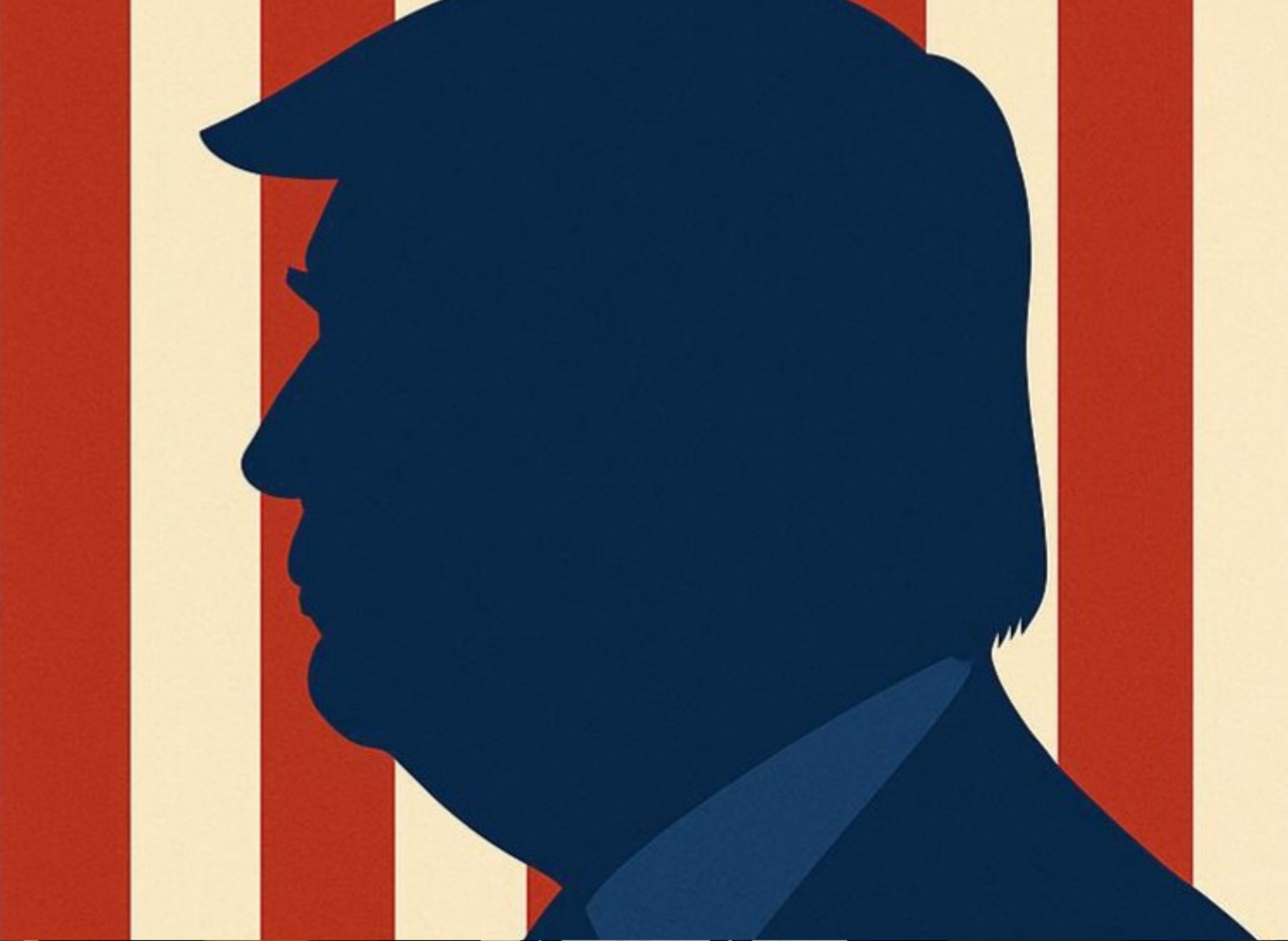
The PLA’s Loyalty and the Future of the CCP
How the Chinese Military Could Shape China’s Next Chapter
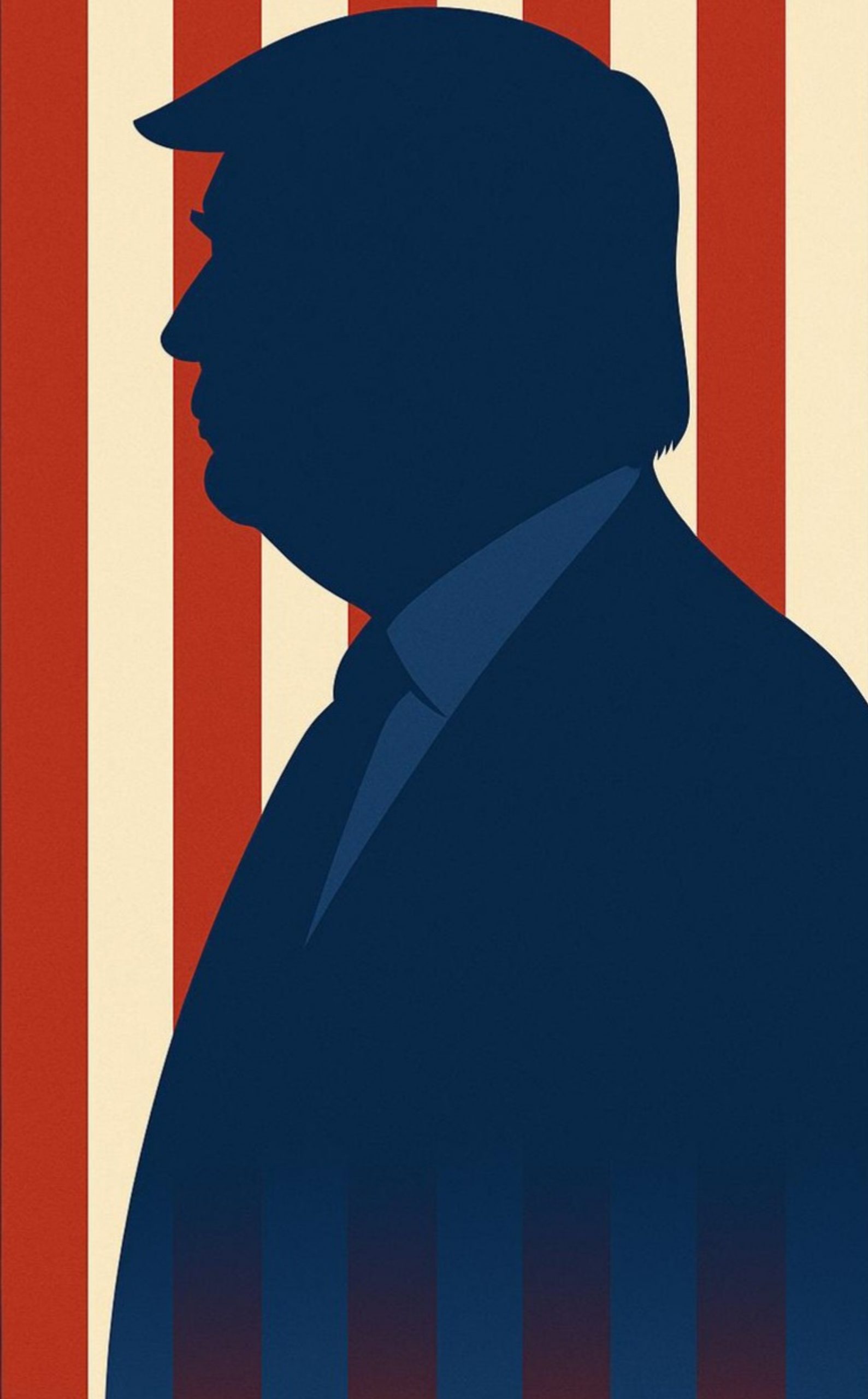
President Donald Trump’s remarkable return to the U.S. presidency in a Grover Cleveland redux, not seen since 1892, has generated significant domestic and foreign policy ripples, as well as the predictable waves of angst from those abhorred by anything Trump says, does, posts, or fails to say or do. At the same time, his phoenix-like resurrection has produced embers to rekindle the hopes of many Americans who voted for him and/or his policies, which those voters assert finally place the interests of American citizens in pole position.
Ultimately, most Americans voted
As a former diplomat and a student and teacher of psychology, the answer need not be complicated: respect. Many Americans wanted to be respected (or at least left alone) first by their fellow citizens, many of whom have called them fascists, Nazis, racists, white supremacists, and a myriad of pejorative tropes with the suffix -phobe, nonstop, for
Relatedly, Americans generally want respect from the rest of the world in terms of trade and military cooperation and just plain equal treatment for starters—no more dependence on the U.S. to spend its wealth and send its military into harm’s way in other countries, especially when America receives few tangible benefits for those sacrifices. At least with Trump, these disenchanted and disenfranchised Americans had little doubt
America First, Again
What’s more, Trump’s detractors at home and abroad remain legion, especially in the struggling mainstream media, where they pounce on any perceived Trump or Trump official misstep to rehearse the same tired slogans and divisive slurs, often in unison—a feat that would give even the most fervent Trekkie Borg enthusiasts pause to review the quality of such choreographed groupthink. Another byproduct of Trump’s 2024 victory versus his win in 2016 is that there are now confirmed U.S. citizens (although only a few to date) connected to the entertainment business who actually “fled” the U.S. when Trump won again in 2024 (e.g., Ellen DeGeneres and Portia de Rossi [to the U.K.], Rosie O’Donnell [to Ireland], and Courtney Love [to the U.K.]).
is a former U.S. Senior Diplomat and former Consul General at U.S. Consulate Krakow. He also served as a U.S. diplomat in Ukraine,Turkmenistan, Afghanistan, and Russia.

How the Chinese Military Could Shape China’s Next Chapter
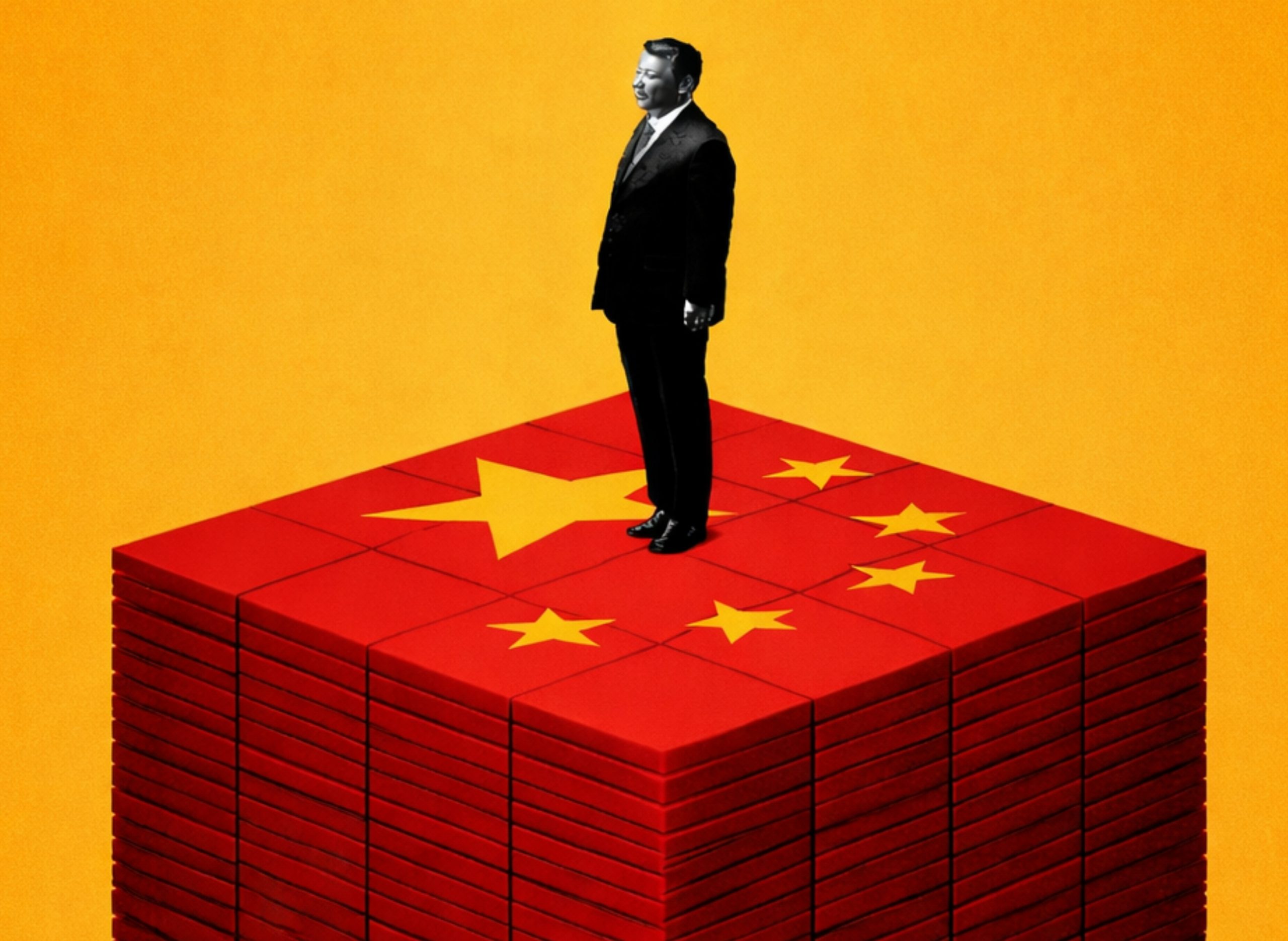

To date, the list of Trump-affected expats is incomplete, and I did not include alleged “celebrities” unknown to me. Finally, there are signs that some sufferers of what many conservatives call Trump Derangement Syndrome (TDS) have started to admit that hating Trump and half the country as one’s primary political platform did not lead to victory in 2024, nor is it likely that this overused plan to attack Trump and his “deplorables” will lead to political wins against a growing conservative electorate. Astonishingly, some Americans and U.S. international partners seem to have selective amnesia when it comes to the public questioning of Trump’s election victories by the media and Democrats nonstop for Trump’s entire first term—a sin Democrats cynically considered a mortal one for Republicans in 2020, when 45 and many of his supporters questioned Biden’s 81 million votes (and some still do).
The Guardian, no friend to Trump, found in January 2024 that 39 percent of U.S. adults still dispute that the 2020 presidential election was fair. Furthermore, the mainstream media only “bravely” acknowledged that the 46th president was “diminished” (non compos mentis) only after a decisive and uncontested November 5 Trump victory. For much of the 2024 campaign season, the mainstream media were either duplicitously lauding Biden’s “cognitive and physical prowess,” often referring to him as “sharp as a tack,” or feigning ignorance toward
Trump’s sworn enemies in the media devoted, instead, more of their “reporting” to any potential threats a second Trump presidency (even referring to him as a fascist or an outright Nazi) would hold for America, showing little intellectual integrity, objectivity, or remorse for allowing their political biases to influence voters. Conversely, they painted a
Democrats and the media implored the country to stop asking who was leading our nation while President Biden was struggling to speak coherently in public, forgetting names and faces of people close to him, even calling out to a deceased Congresswoman at the pulpit during a public event. The world watched as walking up aircraft stairs or across a stage without falling was challenging for
In the days of instantaneous news (biased or otherwise), hot takes, memes, clips, videos, social media, and podcasts, it is too soon to predict the consequences of Trump’s second term. But before pandits and pundits alike continue their
To date, the list of Trump-affected expats is incomplete, and I did not include alleged “celebrities” unknown to me. Finally, there are signs that some sufferers of what many conservatives call Trump Derangement Syndrome (TDS) have started to admit that hating Trump and half the country as one’s primary political platform did not lead to victory in 2024, nor is it likely that this overused plan to attack Trump and his “deplorables” will lead to political wins against a growing conservative electorate. Astonishingly, some Americans and U.S. international partners seem to have selective amnesia when it comes to the public questioning of Trump’s election victories by the media and Democrats nonstop for Trump’s entire first term—a sin Democrats cynically considered a mortal one for Republicans in 2020, when 45 and many of his supporters questioned Biden’s 81 million votes (and some still do).
The Guardian, no friend to Trump, found in January 2024 that 39 percent of U.S. adults still dispute that the 2020 presidential election was fair. Furthermore, the mainstream media only “bravely” acknowledged that the 46th president was “diminished” (non compos mentis) only after a decisive and uncontested November 5 Trump victory. For much of the 2024 campaign season, the mainstream media were either duplicitously lauding Biden’s “cognitive and physical prowess,” often referring to him as “sharp as a tack,” or feigning ignorance toward
Trump’s sworn enemies in the media devoted, instead, more of their “reporting” to any potential threats a second Trump presidency (even referring to him as a fascist or an outright Nazi) would hold for America, showing little intellectual integrity, objectivity, or remorse for allowing their political biases to influence voters. Conversely, they painted a
Democrats and the media implored the country to stop asking who was leading our nation while President Biden was struggling to speak coherently in public, forgetting names and faces of people close to him, even calling out to a deceased Congresswoman at the pulpit during a public event. The world watched as walking up aircraft stairs or across a stage without falling was challenging for
In the days of instantaneous news (biased or otherwise), hot takes, memes, clips, videos, social media, and podcasts, it is too soon to predict the consequences of Trump’s second term. But before pandits and pundits alike continue their
Trump is an effective and proven cheerleader for putting the needs of the United States first.
Still Standing
So how did a non-career politician, with a reputation for brashness, overcome two impeachments, 34 convictions in a New York State court (misdemeanor bookkeeping charges escalated to felony charges for the first time in such a case), accusations of spearheading or enabling an insurrection on January 6, 2021, and two assassination attempts, decidedly convince Americans he still deserved their vote and a historical second term? Although President Trump and his team rarely shy away from the spotlight or credit for accomplishments, the current shift in U.S. domestic and foreign policy is not all Trump’s doing, although many in the media like to paint a picture to that effect.
Whether it is fashionable to acknowledge it or not, many Americans agree with Trump that America must take care of its homeland first—to be able to support other countries financially and militarily, one’s own house must be in order, and the country must be internally stronger to be great again. It is this rising ground support among more and more Americans for a return to a more conservative normalcy, and not a “normalcy” where everything seemed to be turned upside down (e.g., trans women competing in women’s sports, late-term abortions, a massive increase of illegal aliens in the country, employees hired or rejected based on race and gender camouflaged as DEI, taxpayer-funded sex change operations, mass lawfare against one’s political opponent, their families, and supporters, and what many saw as two very different legal systems).
There was one lenient system where woke liberals faced few to no consequences, and a second where the proverbial book could be thrown at any conservative at any time. According to consistent polling, most Americans want their country’s borders to be better secured, immigration laws consistently enforced, while pressing for illegal aliens (especially those with criminal records in their home countries, or worse, in the United States) to be deported expeditiously. Additionally,
Many Americans also want the government to stop foolishly spending their tax dollars (especially on programs in other countries with no tangible benefits for U.S. citizens) and get the nation’s debt-laden
The Man Outside the System
I propose that the ongoing American paradigm shift on economic and foreign affairs has been brewing for some time, with its initial kickstart in 2017, resulting in Trump’s attention to better trade deals, less regulation, tax cuts, and opportunities and assistance, when needed, for the American citizen—not for illegal aliens. Above all, Trump is an effective and proven cheerleader for putting the needs of the United States first (particularly for the working class), creating an inward turn from a decades-long, more globalist approach to U.S. domestic and foreign policy. This Kuhnian shift would be radical under any president.
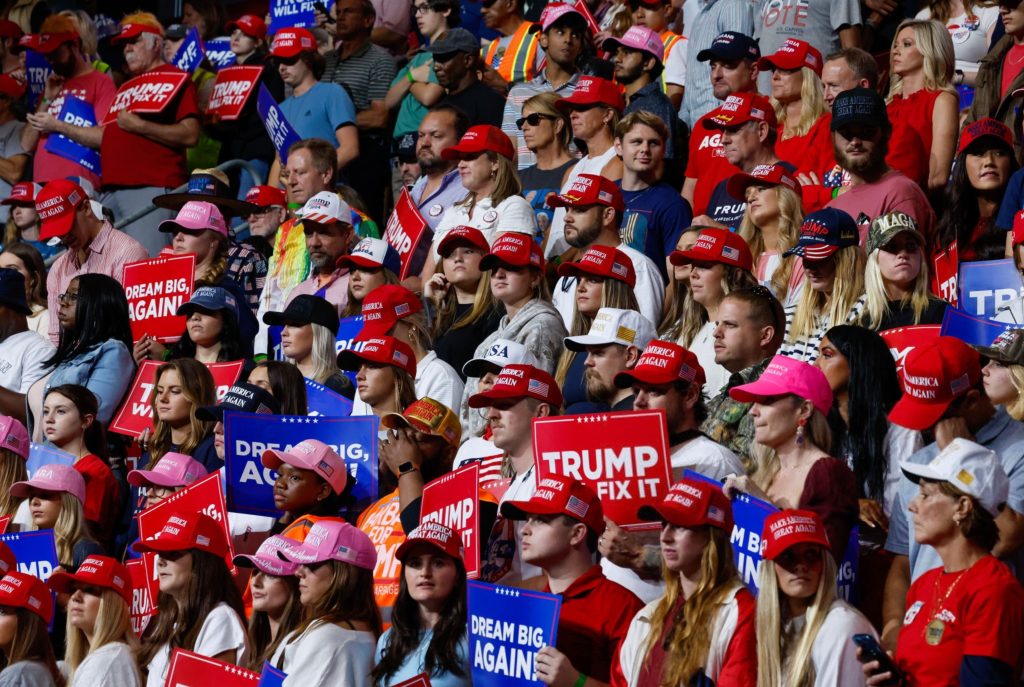

Still Standing
So how did a non-career politician, with a reputation for brashness, overcome two impeachments, 34 convictions in a New York State court (misdemeanor bookkeeping charges escalated to felony charges for the first time in such a case), accusations of spearheading or enabling an insurrection on January 6, 2021, and two assassination attempts, decidedly convince Americans he still deserved their vote and a historical second term? Although President Trump and his team rarely shy away from the spotlight or credit for accomplishments, the current shift in U.S. domestic and foreign policy is not all Trump’s doing, although many in the media like to paint a picture to that effect.
Whether it is fashionable to acknowledge it or not, many Americans agree with Trump that America must take care of its homeland first—to be able to support other countries financially and militarily, one’s own house must be in order, and the country must be internally stronger to be great again. It is this rising ground support among more and more Americans for a return to a more conservative normalcy, and not a “normalcy” where everything seemed to be turned upside down (e.g., trans women competing in women’s sports, late-term abortions, a massive increase of illegal aliens in the country, employees hired or rejected based on race and gender camouflaged as DEI, taxpayer-funded sex change operations, mass lawfare against one’s political opponent, their families, and supporters, and what many saw as two very different legal systems).
There was one lenient system where woke liberals faced few to no consequences, and a second where the proverbial book could be thrown at any conservative at any time. According to consistent polling, most Americans want their country’s borders to be better secured, immigration laws consistently enforced, while pressing for illegal aliens (especially those with criminal records in their home countries, or worse, in the United States) to be deported expeditiously. Additionally,
Many Americans also want the government to stop foolishly spending their tax dollars (especially on programs in other countries with no tangible benefits for U.S. citizens) and get the nation’s debt-laden
The Man Outside the System
I propose that the ongoing American paradigm shift on economic and foreign affairs has been brewing for some time, with its initial kickstart in 2017, resulting in Trump’s attention to better trade deals, less regulation, tax cuts, and opportunities and assistance, when needed, for the American citizen—not for illegal aliens. Above all, Trump is an effective and proven cheerleader for putting the needs of the United States first (particularly for the working class), creating an inward turn from a decades-long, more globalist approach to U.S. domestic and foreign policy. This Kuhnian shift would be radical under any president.
Still, for Donald Trump, who maintains he is not beholden to special interests or donors like most politicians, this shift is arguably moving at a hypersonic pace in terms of enacting executive orders (EOs) and taking other actions to put America first. Moreover, President Trump’s status as a longstanding cultural and iconoclastic figure in Americana, and his direct approach in 2025, make him the ideal punching bag for any outcomes the liberal opposition dislikes. Be prepared for a myriad of left-leaning polls prophesying Trump’s “historic drops in the polls” and his imminent demise. In retrospect, Trump’s ascension to the nation’s top job in 2016 was the result of many variables, with some conflating and confounding ones in the mix.
Mainly, he had vicariously lived in the realm of politics without having ever run for office or been elected, but he knew how politics worked or didn’t, and had donated accordingly for years to candidates that he thought might be useful to him and his businesses—something he stated openly on the debate stage with Hillary Clinton in 2016. Acknowledging that he had benefited from a less-than-transparent political system, he boasted that he was the one with the experience needed to fix it. For Americans devastated by inflation, lower wages, higher costs of living, and bleaker opportunities to finance a home, Trump was their guy in 2016, and for many, he remains so in 2025.
Beyond Globalism: Trump’s Way
Fast forward to 2025, and Trump’s second term is arguably a hyperextension of his America First policy, conceived in 2016, a policy often described as isolationist and nationalistic. To his core, Trump is a capitalist who views himself as a patriot—he wants all American citizens to become prosperous, while he publicly bemoans the perception that America has been the world’s piggybank and patsy for decades, having been taken advantage of by unfair trade tactics and tariffs, often by our closest allies, and having little but close to $40 trillion in debt to show for this apparent ill-conceived generosity.
As a former diplomat and someone who participated in trade negotiations at the Office of the U.S. Trade Representative, I remember asking, as I perused the General Agreement on Tariffs and Trade (GATT), which was first signed in 1947 and last updated in 1994, about the disparity among tariffs and additional penalties such as value-added taxes on U.S. goods. I was told by senior trade officers that discrepancies in trade balances and tariffs were the United States’ soft power that could be later leveraged with countries when needed.
For Trump and many of his supporters, the short- and long-term costs for that soft power were too great, leading only to a weaker United States. During the 2024 campaign, as interest rates skyrocketed, along with food, rent, energy, and credit card interest, down payments on a home seemed like impossible dreams, and talk of “soft power” reminded many voters of a phrase Trump repeated on the campaign trail and now at press conferences: “Other countries have been ripping us off for decades.”
Trump doesn’t seek conflict, but he refuses to let allies take advantage of America’s goodwill.
At the same time, a tariff war will likely bring higher prices and perhaps a dearth of beloved goods to Americans (arguably addicted to cheaper goods made offshore) if an actual trade war persists beyond attempts to leverage reciprocal tariffs for creating more trading equality for American producers and consumers. In other words, Trump’s public statements indicate that he views other countries as potential economic and commercial rivals until they prove otherwise by treating the United States equally—not equitably, per se.
This distinction is key, as Trump’s critics on reciprocal tariffs are quick to point out inequity between developing economies and the United States, all the while buying into the canard that China is a developing economy. For Trump, talk is cheap, and reciprocal tariffs could be the catalyst needed to equalize the world’s trading system, allowing American companies to compete against an ever-looming China—or, better, foreign companies could relocate to the United States, hire Americans, and avoid tariffs altogether.
Clearly, Trump stands at odds with modern monetary theory, fearing that the nation’s increased debt will mark the end of American dominance and excellence, leading to a recession and a likely depression. Trump would much rather increase the size of the proverbial pie so everyone benefits, but the critical caveat for Trump is that America must get the biggest piece—and after years of American generosity with no return on investment, many Americans agree with his policies on trade and military action.
Not only is this paradigm something one would expect from a successful New York real estate mogul and TV personality, but it is another reason Americans voted for him—he was not a career politician, nor does he necessarily speak or act like one—a prime component of his charisma. Most importantly, Trump is the analogous wrecking ball to years of globalist flirtations with open borders, socialism, and communism that have made their way across the ocean from Europe to North America and arguably have already infiltrated Canada for decades.
No More Wars
Decades of involvement and support for foreign wars and conflicts, along with financial aid, have taken their toll on the United States, a nation of 340 million and a growing debt of over $36 trillion. Billions on international development have been scaled back, and USAID offices have been shuttered. As someone who has only served in a civilian role in Afghanistan, I, along with millions of Americans, support President Trump’s efforts to maintain peace, even if pundits and his critics focus on the “perceived unorthodoxy” of his methods. Most Americans do not want or support any more wars.
Still, for Donald Trump, who maintains he is not beholden to special interests or donors like most politicians, this shift is arguably moving at a hypersonic pace in terms
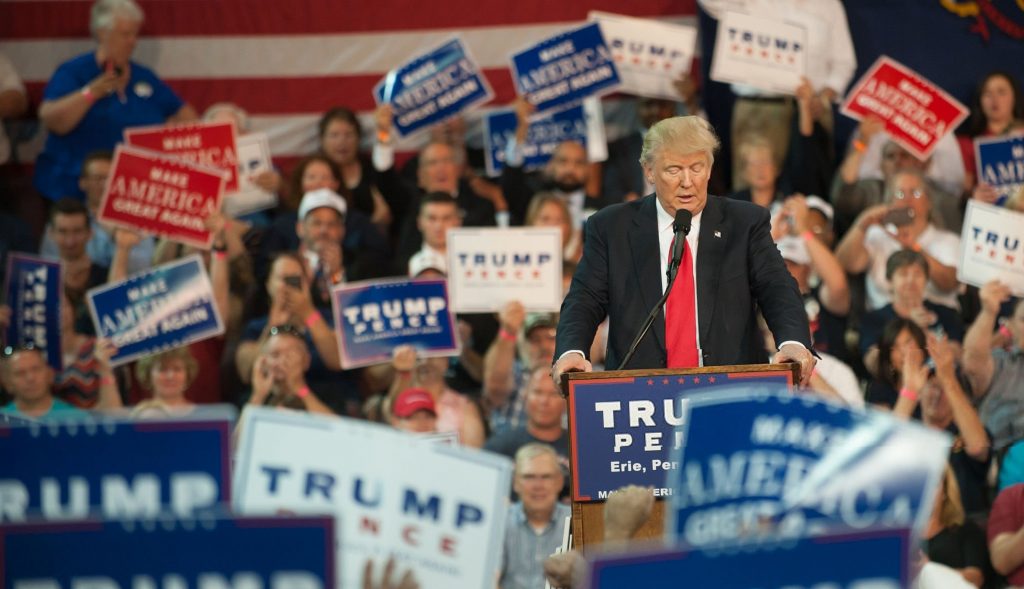
Trump’s promises to immediately end the more than three-year war between Russia and Ukraine were obvious hyperbole, but also a reflection of Trump’s genuine intentions to attempt to stop innocent people from dying in a senseless war, which he continuously blames Presidents Obama and Biden for failing to prevent. I have served as a U.S. diplomat in Poland, Ukraine, and Russia and maintain contact with people in the know in each country. All of them hope a solution will be found soon and feel Trump’s strong personality and iron will are exactly what is needed to catalyze much-needed peace between Ukraine and Russia, while addressing the well-founded security fears of those in the neighborhood, such as Poland, the Baltic states, and Finland.
Trump continues to support Israel and its ongoing war with Hamas and other Iranian-backed proxies, Hezbollah and the Houthis. Trump’s loyalty to Israel is not one-sided, however. Israel has made every effort to even the trade balance and tariff differentials with the United States. His offer to develop Gaza has led to more out-of-the-box discussions to perhaps mitigate decades of conflict and death. The liberal media, however,
You Pay, You Stay
Trump’s ability to frustrate and anger other countries is nothing new. But what the media often fails to see and report, purposely or not, is that Trump is defending his fellow citizens from previous agreements or expectations that benefit America’s allies,
Our northern neighbor, Canada, for example, has enjoyed decades of access to the U.S. market, while blocking many U.S. exports, making no real efforts to meet the minimum NATO two percent of GDP contributions, betting that “the Americans will save Canada if someone ever attacked North America.” As painful as it might be for Canadians to hear it, they can present as ungrateful neighbors who rest on their geographical fortune of being adjacent to the U.S., all the while mocking their southern neighbors at every turn, even booing the U.S. national anthem at sporting events.
Trump’s tariffs on Canada showed that the days of the United States subsidizing the Canadian economy out of kindness and the proximity principle are finally under public scrutiny. Trump is admittedly transactional,
Europe, You’re Welcome
Of particular interest to the readers of this publication is the state of the U.S.–Europe relationship in Trump’s second term. What few Europeans understand about Americans in the days of YouTube, Spotify, Instagram, Rumble, X, and Facebook is that Americans are finally understanding how many Western, Old-World Europeans (not all Europeans) despise Americans and U.S. culture, forgetting the sacrifices the United States has made for decades to keep Europe safe and prosperous. Translated clips of Europeans brutally mocking Americans, including Trump—but not limited to him—are myriad, and Europe no longer receives almost automatic respect from the number of Americans it used to enjoy.
In fact, Europe’s flirtations with socialism, communism, censorship, and unfair tariff and trade policies are proverbially coming home to roost. Trump has been extremely critical of the EU’s lopsided, protectionist tariffs against U.S. goods and other trade barriers that allow Europeans to benefit from America’s largess and generosity while attacking at least half of the United States on a regular basis without any fear of repercussions. With Trump, real U.S. allies are loyal, and if they show continuous disdain for the United States, he eventually tends to believe them. The grandest example of European cognitive dissonance that irked Trump and many Americans was Germany’s ill-conceived plans for the Nord Stream 2 pipeline with Russia, while at the same time balking at paying more to NATO, when the United States was paying the lion’s share in NATO to protect Europe from Russia.
Leadership on His Terms
A majority of voting Americans chose
Should the Democrats win, they will likely spend time and resources impeaching Trump for a third time. The truth is, America under Biden was a disaster—politically, judicially, socially, economically, at the border, and in terms of national security. Given that backdrop, it should not be incredulous that America selected someone willing to fight for her and her people, no matter what. If the media had not covered for Biden and then Harris, Trump’s second victory would have been even more resounding.
For America’s global partners, it is important to know that decades of U.S. governmental neglect for certain parts of the population and ludicrous spending and debt have caused American voters—and the man they voted for—to look inward and not simply manage the superficial symptoms of a growing disease. At his center, Trump is a businessman who wants to make deals and build mutually beneficial relationships. The converse is also true: if Trump believes American taxpayers are being taken advantage of, he will fight, often brashly—and to the chagrin of his critics.
Trump envisions a more prosperous world at peace, with the United States involving itself when the interests of the United States are at stake. Some of Trump’s staunchest American hecklers have made efforts to meet with Trump and/or his officials to get things done and to see another side of the 47th President—something biased media are loath to attempt. Many world leaders should respect Trump’s intransigence in putting Americans first, which is something America’s sitting president expects from leaders of their respective countries. It is that stalwart dedication to the best interest of one’s citizens that endears Trump to so many Americans.
of enacting executive orders (EOs) and taking other actions to put America first. Moreover, President Trump’s status as a longstanding cultural and iconoclastic figure in Americana, and his direct approach in 2025, make him the ideal punching bag for any outcomes the liberal opposition dislikes. Be prepared for a myriad of left-leaning polls prophesying Trump’s “historic drops in the polls” and his imminent demise. In retrospect, Trump’s ascension to the nation’s top job in 2016 was the result of many variables, with some conflating and confounding ones in the mix.
Mainly, he had vicariously lived in the realm of politics without having ever run for office or been elected, but he knew how politics worked or didn’t, and had donated accordingly for years to candidates that he thought might be useful to him and his businesses—something he stated openly on the debate stage with Hillary Clinton in 2016. Acknowledging that he had benefited from a less-than-transparent political system, he boasted that he was the one with the experience needed to fix it. For Americans devastated by inflation, lower wages, higher costs of living, and bleaker opportunities to finance a home, Trump was their guy in 2016, and for many, he remains so in 2025.
Beyond Globalism: Trump’s Way
Fast forward to 2025, and Trump’s second term is arguably a hyperextension of his America First policy, conceived in 2016, a policy often described as isolationist and nationalistic. To his core, Trump is a capitalist who views himself as a patriot—he wants all American citizens to become prosperous, while he publicly bemoans the perception that America has been the world’s piggybank and patsy for decades, having been taken advantage of by unfair trade tactics and tariffs, often by our closest allies, and having little but close to $40 trillion in debt to show for this apparent ill-conceived generosity.
As a former diplomat and someone who participated in trade negotiations at the Office of the U.S. Trade Representative, I remember asking, as I perused the General Agreement on Tariffs and Trade (GATT), which was first signed in 1947 and last updated in 1994, about the disparity among tariffs and additional penalties such as value-added taxes on U.S. goods. I was told by senior trade officers that discrepancies in trade balances and tariffs were the United States’ soft power that could be later leveraged with countries when needed.
For Trump and many of his supporters, the short- and long-term costs for that soft power were too great, leading only to a weaker United States. During the 2024 campaign, as interest rates skyrocketed, along with food, rent, energy, and credit card interest, down payments on a home seemed like impossible dreams, and talk of “soft power” reminded many voters of a phrase Trump repeated on the campaign trail and now at press conferences: “Other countries have been ripping us off for decades.”

At the same time, a tariff war will likely bring higher prices and perhaps a dearth of beloved goods to Americans (arguably addicted to cheaper goods made offshore) if an actual trade war persists beyond attempts to leverage reciprocal tariffs for creating more trading equality for American producers and consumers. In other words, Trump’s public statements indicate that he views other countries as potential economic and commercial rivals until they prove otherwise by treating the United States equally—not equitably, per se.
This distinction is key, as Trump’s critics on reciprocal tariffs are quick to point out inequity between developing economies and the United States, all the while buying into the canard that China is a developing economy. For Trump, talk is cheap, and reciprocal tariffs could be the catalyst needed to equalize the world’s trading system, allowing American companies to compete against an ever-looming China—or, better, foreign companies could relocate to the United States, hire Americans, and avoid tariffs altogether.
Clearly, Trump stands at odds with modern monetary theory, fearing that the nation’s increased debt will mark the end of American dominance and excellence, leading to a recession and a likely depression. Trump would much rather increase the size of the proverbial pie so everyone benefits, but the critical caveat for Trump is that America must get the biggest piece—and after years of American generosity with no return on investment, many Americans agree with his policies on trade and military action.
Not only is this paradigm something one would expect from a successful New York real estate mogul and TV personality, but it is another reason Americans voted for him—he was not a career politician, nor does he necessarily speak or act like one—a prime component of his charisma. Most importantly, Trump is the analogous wrecking ball to years of globalist flirtations with open borders, socialism, and communism that have made their way across the ocean from Europe to North America and arguably have already infiltrated Canada for decades.
No More Wars
Decades of involvement and support for foreign wars and conflicts, along with financial aid, have taken their toll on the United States, a nation of 340 million and a growing debt of over $36 trillion. Billions on international development have been scaled back, and USAID offices have been shuttered. As someone who has only served in a civilian role in Afghanistan, I, along with millions of Americans, support President Trump’s efforts to maintain peace, even if pundits and his critics focus on the “perceived unorthodoxy” of his methods. Most Americans do not want or support any more wars.
Trump’s promises to immediately end the more than three-year war between Russia and Ukraine were obvious hyperbole, but also a reflection of Trump’s genuine intentions to attempt to stop innocent people from dying in a senseless war, which he continuously blames Presidents Obama and Biden for failing to prevent. I have served as a U.S. diplomat in Poland, Ukraine, and Russia and maintain contact with people in the know in each country. All of them hope a solution will be found soon and feel Trump’s strong personality and iron will are exactly what is needed to catalyze much-needed peace between Ukraine and Russia, while addressing the well-founded security fears of those in the neighborhood, such as Poland, the Baltic states, and Finland.
Trump continues to support Israel and its ongoing war with Hamas and other Iranian-backed proxies, Hezbollah and the Houthis. Trump’s loyalty to Israel is not one-sided, however. Israel has made every effort to even the trade balance and tariff differentials with the United States. His offer to develop Gaza has led to more out-of-the-box discussions to perhaps mitigate decades of conflict and death. The liberal media, however,
You Pay, You Stay
Trump’s ability to frustrate and anger other countries is nothing new. But what the media often fails to see and report, purposely or not, is that Trump is defending his fellow citizens from previous agreements or expectations that benefit America’s allies,
Our northern neighbor, Canada, for example, has enjoyed decades of access to the U.S. market, while blocking many U.S. exports, making no real efforts to meet the minimum NATO two percent of GDP contributions, betting that “the Americans will save Canada if someone ever attacked North America.” As painful as it might be for Canadians to hear it, they can present as ungrateful neighbors who rest on their geographical fortune of being adjacent to the U.S., all the while mocking their southern neighbors at every turn, even booing the U.S. national anthem at sporting events.
Trump’s tariffs on Canada showed that the days of the United States subsidizing the Canadian economy out of kindness and the proximity principle are finally under public scrutiny. Trump is admittedly transactional,
Europe, You’re Welcome
Of particular interest to the readers of this publication is the state of the U.S.–Europe relationship in Trump’s second term. What few Europeans understand about Americans in the days of YouTube, Spotify, Instagram, Rumble, X, and Facebook is that Americans are finally understanding how many Western, Old-World Europeans (not all Europeans) despise Americans and U.S. culture, forgetting the sacrifices the United States has made for decades to keep Europe safe and prosperous. Translated clips of Europeans brutally mocking Americans, including Trump—but not limited to him—are myriad, and Europe no longer receives almost automatic respect from the number of Americans it used to enjoy.
In fact, Europe’s flirtations with socialism, communism, censorship, and unfair tariff and trade policies are proverbially coming home to roost. Trump has been extremely critical of
the EU’s lopsided, protectionist tariffs against U.S. goods and other trade barriers that allow Europeans to benefit from America’s largess and generosity while attacking at least half of the United States on a regular basis without any fear of repercussions. With Trump, real U.S. allies are loyal, and if they show continuous disdain for the United States, he eventually tends to believe them. The grandest example of European cognitive dissonance that irked Trump and many Americans was Germany’s ill-conceived plans for the Nord Stream 2 pipeline with Russia, while at the same time balking at paying more to NATO, when the United States was paying the lion’s share in NATO to protect Europe from Russia.
Leadership on His Terms
A majority of voting Americans chose
Should the Democrats win, they will likely spend time and resources impeaching Trump for a third time. The truth is, America under Biden was a disaster—politically, judicially, socially, economically, at the border, and in terms of national security. Given that backdrop, it should not be incredulous that America selected someone willing to fight for her and her people, no matter what. If the media had not covered for Biden and then Harris, Trump’s second victory would have been even more resounding.
For America’s global partners, it is important to know that decades of U.S. governmental neglect for certain parts of the population and ludicrous spending and debt have caused American voters—and the man they voted for—to look inward and not simply manage the superficial symptoms of a growing disease. At his center, Trump is a businessman who wants to make deals and build mutually beneficial relationships. The converse is also true: if Trump believes American taxpayers are being taken advantage of, he will fight, often brashly—and to the chagrin of his critics.
Trump envisions a more prosperous world at peace, with the United States involving itself when the interests of the United States are at stake. Some of Trump’s staunchest American hecklers have made efforts to meet with Trump and/or his officials to get things done and to see another side of the 47th President—something biased media are loath to attempt. Many world leaders should respect Trump’s intransigence in putting Americans first, which is something America’s sitting president expects from leaders of their respective countries. It is that stalwart dedication to the best interest of one’s citizens that endears Trump to so many Americans.
Recommended

How the Chinese Military Could Shape China’s Next Chapter

Failure Through Weakness

How Jeffersonians See Foreign Burdens?

Why a Weak Russia Is Still Dangerous

A Hamiltonian Approach to Power and Foreign Policy
